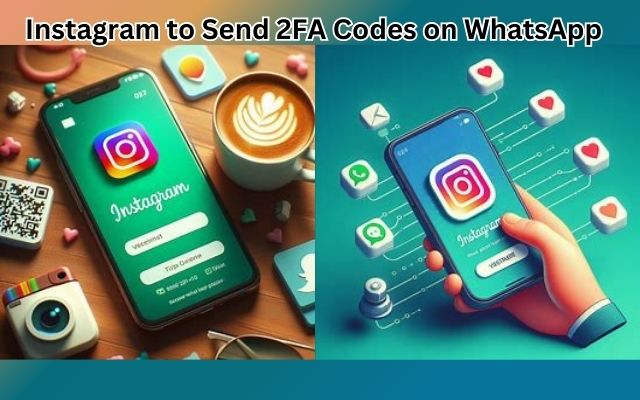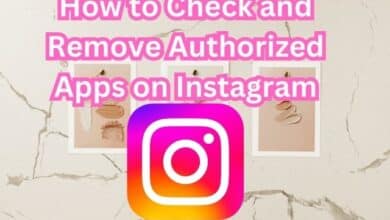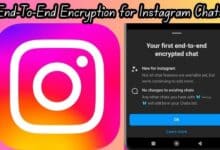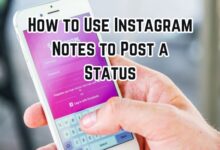Instagram’s New Strategy: Instagram to Send 2FA Codes on WhatsApp
Navigating Instagram’s New Security Landscape: 2FA Codes on WhatsApp

Instagram’s plan to send 2FA codes on WhatsApp marks a significant shift in the realm of online security. As digital platforms become increasingly intertwined, this move represents a novel approach to user authentication.
Two-Factor Authentication (2FA) has emerged as a crucial layer of security in our digital lives. It adds an extra step to your basic login procedure to verify your identity, thereby drastically reducing the chances of a successful cyber attack. Instagram, a platform with over a billion users, understands the importance of this security measure.
The decision to send 2FA codes via WhatsApp, another popular platform owned by Meta, is an interesting one. This move could potentially streamline the user experience while enhancing security. However, it also raises questions about privacy and data sharing between platforms.
In this article, we will delve into the implications of this plan, its potential benefits, and the concerns it might raise among users.
What is 2FA
Two-Factor Authentication, commonly known as 2FA, is a security measure that adds an extra layer of protection to your online accounts. It requires not only a password and username but also something that only the user has on them, such as a piece of information only they should know or have immediately at hand – like a physical token.
The primary benefit of 2FA is that it provides increased security by creating multiple barriers to unauthorized access. Even if someone manages to learn your password, they would still need the second factor – typically a temporary code – to access your account.
Now, Instagram plans to send 2FA codes on WhatsApp, adding a new dimension to this security protocol. Currently, Instagram allows 2FA through an Authentication app, text messages, login requests, and backup codes. The addition of WhatsApp as a platform for receiving 2FA codes is still in development, but it represents a significant shift in Instagram’s approach to user security.
Now, we will explore this development in more detail, examining its potential impact on users and how it compares to 2FA implementations on other platforms.
Instagram’s Current 2FA System
Instagram, like many other online platforms, has recognized the importance of Two-Factor Authentication (2FA) in protecting user accounts. As of now, Instagram allows 2FA through an Authentication app, text messages, login requests, and backup codes.
The current system works by requiring users to enter a unique code, sent via SMS or generated by an authentication app, in addition to their password. This adds an extra layer of security, making it more difficult for unauthorized users to gain access to accounts.
However, this system is not without its flaws. SMS-based 2FA, for instance, can be vulnerable to interception, and users may not always have access to their authentication app. Moreover, backup codes, if not stored securely, can also pose a security risk.
In light of these challenges, Instagram is planning a significant update to its 2FA system. The platform is developing a feature to send 2FA codes via WhatsApp, another popular app owned by Meta. This move could potentially address some of the current system’s weaknesses while offering a more convenient option for users.
Now, we will delve deeper into why Instagram is considering this change and what it could mean for users.
WhatsApp: A New Platform for 2FA
In a significant shift, Instagram is planning to send 2FA codes via WhatsApp. This move is seen as an attempt to enhance the security measures on the platform while also providing a more convenient option for users.
WhatsApp, another popular app owned by Meta, has a vast user base. By leveraging this platform for sending 2FA codes, Instagram aims to streamline the authentication process. This could be particularly beneficial for users who frequently use both apps.
However, this feature is still in development, and it’s not yet clear when it will be available for iOS and Android users. Users must enable text message authentication to toggle on WhatsApp as a 2FA method. Just like the current 2FA methods, this feature will be optional, and users can decide to never opt-in or just use an Authentication app instead.
While this development is promising, it also raises questions about privacy and data sharing between platforms. In the following sections, we will explore these implications in more detail, examining the potential impact on users and how it compares to 2FA implementations on other platforms.
Implications for Users
The decision by Instagram to send 2FA codes via WhatsApp could have several implications for users. On the one hand, this move could offer a more convenient and streamlined user experience. For those who frequently use both Instagram and WhatsApp, receiving 2FA codes directly on WhatsApp could save time and simplify the login process.
However, this development also raises questions about privacy and data sharing between platforms. As both Instagram and WhatsApp are owned by Meta, this move could potentially lead to increased data integration between the two platforms. While this could enhance functionality, it might also lead to concerns about data privacy.
Moreover, the security of 2FA codes sent via WhatsApp could be another area of concern. While WhatsApp messages are end-to-end encrypted, meaning they can only be read by the sender and the recipient, there are still potential vulnerabilities. For instance, if a user’s phone were to be compromised, attackers could potentially access 2FA codes sent via WhatsApp.
Despite these concerns, it’s important to note that the use of WhatsApp for receiving 2FA codes will be optional. Users who prefer not to use this method can continue to use other 2FA methods offered by Instagram, such as an authentication app or SMS.
Comparisons with Other Platforms
When it comes to Two-Factor Authentication (2FA), different platforms have their unique approaches. For instance, Google users can receive 2FA codes via text message, voice call, or through the Google Authenticator app. Similarly, Twitter offers 2FA through text messages or a third-party authentication app.
Instagram’s plan to send 2FA codes via WhatsApp represents a novel approach in this landscape. By leveraging a popular messaging platform for 2FA, Instagram could potentially offer a more seamless and convenient user experience. However, it’s worth noting that this method also raises questions about data privacy and security.
While WhatsApp messages are end-to-end encrypted, potential vulnerabilities could still pose security risks. Therefore, it’s crucial for users to understand these risks and make informed decisions about their 2FA preferences.
Now, we will explore the future of 2FA on Instagram, considering the potential impact of this new feature and how it fits into the broader landscape of online security.
Future of 2FA on Instagram
As Instagram plans to send 2FA codes on WhatsApp, it’s clear that the platform is continuously evolving its security measures. This move could potentially offer a more streamlined and secure user experience, especially for those who frequently use both apps.
However, it’s important to note that this feature is still in development, and it’s not yet clear when it will be available for iOS and Android users. As with any new feature, it will likely undergo rigorous testing and refinement before it’s rolled out to the public.
Looking ahead, we can expect Instagram to continue exploring innovative ways to enhance user security. This could include further integration with other platforms, improvements to existing 2FA methods, or even the introduction of new authentication technologies.
While the future of 2FA on Instagram is still unfolding, one thing is certain: user security remains a top priority for the platform. As we continue to navigate the digital landscape, it’s reassuring to know that platforms like Instagram are taking proactive steps to keep our accounts safe.
- Instagram Tries Out ‘Favorite Users’ Feature for Better Socializing!
- Change Your Instagram Theme: A Quick and Easy Guide
- Instagram Profile Visits: The Pros and Cons of Using UseViral
FAQ: Instagram to Send 2FA Codes on WhatsApp
Does Instagram send login code on WhatsApp?
Yes, Instagram has a feature that allows users to receive two-factor authentication (2FA) codes via WhatsApp. This feature is gradually being rolled out and may not be available to all users immediately.
How do I get my Instagram security code for WhatsApp?
To get Instagram login codes on WhatsApp, you need to link your WhatsApp account with your Instagram account in the Instagram settings. Once set up, you will receive a 6-digit code from Instagram’s official business account on WhatsApp whenever you log in.
How to get Instagram to send a two-factor authentication code?
Instagram sends a two-factor authentication code via SMS when you enable this feature in your account settings. You can also use an authenticator app to generate these codes.
How to get 6 digit code from authenticator app for Instagram?
To get a 6-digit code from an authenticator app for Instagram, you first need to set up two-factor authentication in your Instagram settings. You can then use an authenticator app like Google Authenticator or Authy to generate these codes.
Can I use WhatsApp for two-factor authentication?
Yes, WhatsApp offers a two-step verification feature that adds an extra layer of security to your account. You can enable this feature in your WhatsApp settings.
How do I get my Instagram backup code?
You can get a list of Instagram backup codes from your account settings. These codes serve as a backup login method in case you lose access to your account.
Why am I not receiving 6 digit code from Instagram?
There could be several reasons why you’re not receiving a 6-digit code from Instagram. It could be due to server overload, a banned IP address, or issues with your phone number or SIM card.
Can someone use my WhatsApp account without verification code?
No, someone cannot use your WhatsApp account without the verification code. WhatsApp uses a verification code sent to your phone number to ensure only authorized users gain access to their accounts.
Can WhatsApp get verification codes?
Yes, WhatsApp can automatically verify your phone number when you register your account. This can be done by storing a unique code on your phone, which is used to automatically verify your phone number in the future.
Conclusion: Instagram to Send 2FA Codes on WhatsApp
Instagram’s plan to send 2FA codes on WhatsApp represents a significant shift in the realm of online security. This move could potentially offer a more streamlined and secure user experience, especially for those who frequently use both apps.
However, it’s important to note that this feature is still in development, and it’s not yet clear when it will be available for iOS and Android users. As with any new feature, it will likely undergo rigorous testing and refinement before it’s rolled out to the public.
As we continue to navigate the digital landscape, it’s reassuring to know that platforms like Instagram are taking proactive steps to keep our accounts safe. While the future of 2FA on Instagram is still unfolding, one thing is certain: user security remains a top priority for the platform.







